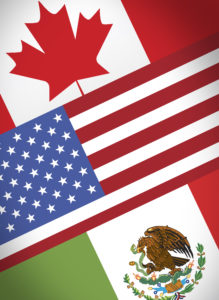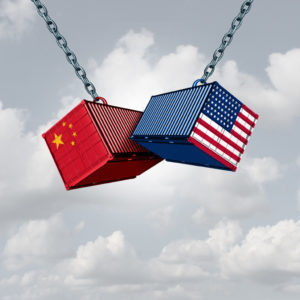News & Insights
Trump-Xi Jinping Working Dinner at the G-20 Summit Leads to Significant Developments Involving the Section 301 Tariffs and Other Key Trade Issues Involving China
The Trump Administration announced a significant development in the imposition of Section 301 tariffs on more than $200 billion worth of Chinese-origin goods imported into the United States, as well as proposed new trade and the stemming of the flow of Fentanyl into the United States from China. Affected companies should continue monitoring the situation for new developments.
Following Presidents Trump and Xi’s working dinner this past weekend at the G-20 Summit in Buenos Aires, the White House announced that—
- The United States will not increase tariffs on the List 3 products from China to 25% on January 1, 2019, as had been previously announced. The List 3 products will continue to be subject to a 10% ad valorem tariff for the time being.
- The United States and China have agreed to begin negotiations with respect to forced technology transfers, intellectual property protection, non-tariff barriers, cyber intrusions, cyber theft, services and agricultural products. They have agreed to complete the negotiations within the next ninety (90) days; however, if the two countries cannot reach an agreement, the 10% tariffs on the List 3 goods will be raised to 25%.
- China stated it will purchase a substantial amount of U.S. agriculture, energy, industrial and other products to reduce the trade imbalance between the two countries.
- China has agreed to designate Fentanyl as a Controlled Substance under China’s laws and regulations. Accordingly, persons selling Fentanyl to the United States will be subject to China’s maximum penalty under the law.
The delay in the increase of the List 3 tariffs will essentially give affected companies a 90-day stay from the imposition of the steep 25% tariff that was previously proposed. However, impacted companies should continue to be vigilant and stay abreast of new developments in this incredibly fluid situation.
If you have any questions pertaining to the Section 301 tariffs or other international trade issues, please contact Melissa Proctor (melissa@millerproctorlaw.com) at Miller Proctor Law PLLC (https:www.millerproctorlaw.com).
News & Insights

Cheers to Lower Federal Excise Taxes on Imports of Beer, Wine and Distilled Spirits!
On December 22, 2017, “The Craft Beverage Modernization and Tax Reform Act” (“the Act”), was signed into law by President Trump making significant changes to the federal excise tax rates assessed on wines, distilled spirits and beer. The Act formally

And Then There Were Three: The U.S., Mexico and Canada Agree to Sign the New USMCA
Canada just joined the United States and Mexico in agreeing to sign on to a modernized NAFTA, which will become known as the US-Mexico-Canada Agreement (“USMCA”). The U.S. and Mexico entered their agreement a little over a month ago, and


